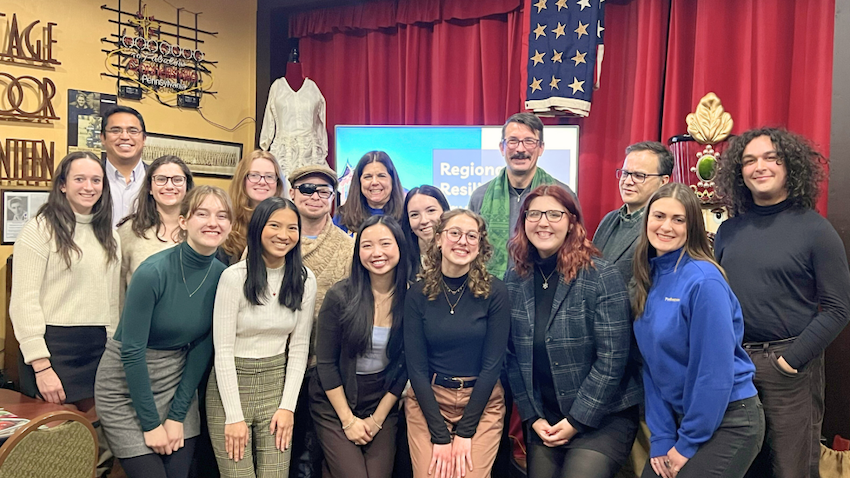The Appalachian Bridges to the future project earned a national Climate Luminary Honor for its work fostering economic developing and fighting brain drain in the region.

Just an hour’s drive from Pittsburgh, Fayette County is home to some of Pennsylvania’s most scenic areas, including Ohiopyle State Park, the Laurel Highlands and Frank Lloyd Wright’s Fallingwater.
Once a major player in the coal and coke industry, most of Fayette County’s coal mines were exhausted by the 1950s. This contributed to a population decline from 200,000 in 1940 to just 128,000 today. A key factor in this loss is “brain drain,” the outmigration of skilled workers seeking better opportunities elsewhere.
The Appalachian Bridges to the Future project is a 10-year partnership between the University of Pittsburgh and the Fayette County Cultural Trust aimed at addressing outmigration while fostering sustainable economic growth. Now in its fourth year, the initiative connects Pitt students with community partners to tackle local challenges through service learning. Collaborating with nearly 100 local organizations, students engage in projects that promote economic resilience with a focus on long-term environmental impact.
Recently, Second Nature, a national nonprofit advancing climate action in higher education, honored the project with a Climate Luminary Honor for its efforts to “advance climate solutions in underserved Appalachian communities.” Michele Madia, senior director at Second Nature, noted, “The exemplary climate action work underway with their Appalachian Bridges to the Future project is a testament to the critical role the higher education sector plays in creating equitable climate solutions.”
